FAQ
What is a Security Token Offering? (STO)
A Security Token Offering, or STO, is similar to an Initial Public Offering (IPO) on the stock exchange a fundraising mechanism in which new projects sell their crypto tokens in exchange for fiat currency, or for cryptocurrency such as Bitcoin and other crypto currencies. With STOs, tokens are sold instead of traditional paper- or electronic shares. Just like shares, security tokens are subject to supervision by the respective financial authorities (e.g. BaFin or FMA).
What is a Security Token?
Security Tokens embody claims for a pay-out (“future cashflow”) towards the issuer and may represent ownership of assets, debt, rights and claims amongst other things through smart contracts on a Blockchain, which may be designed in accordance with corporate law or under contract law. Furthermore rights under company law, such as voting rights at a general meeting may also be associated with Security Tokens. Such tokens therefore usually embody claims to the payment of capital, whether in the form of participation in the profits of the company or in the form of interest payments and repayment. In this instance it is not compulsory for such claims to exist in a legal tender currency.
The design of such security tokens is therefore similar to that of “classical securities” in particular bonds or shares. European regulators often classify security tokens as transferable securities within the meaning of the relevant Capital Markets Act. A legal assessment of the classification of the Security Token is therefore to be made depending on the jurisdiction and the registered office of the issuer.
Is a Security Token a cryptocurrency like Bitcoin?
Not exactly. While Security Tokens use the same underlying technology as cryptocurrencies like Bitcoin and Ether, they are not spendable currencies. Like a stock, Security Tokens embody claims for a pay-out (“future cashflow”) towards the issuer, which may be designed in accordance with corporate law or under contract law.
What is Blockchain?
A blockchain is a publicly accessible and decentralized database that is distributed over the Internet. It maintains transaction records publicly in cryptographic form. Transactions can be computed, verified, and recorded using automated methods across a peer-to-peer network of computers, eliminating the need for an intermediary or third party to manage information.
What is a smart contract?
A smart contract is “a computerized transaction protocol that executes the terms of a contract”. A blockchain-based smart contract is visible to all users of the said blockchain. These contracts come into effect at certain events and do not require human monitoring (if… then… function). Examples of possible Smart Contract applications are e.g. leasing contracts, land register, auctions and the recharging of e‑cars. The Ethereum Blockchain has an operating system called EVM (Ethereum Virtual Machine). Ethereum Smart Contracts are programmed in the Solidity scripting language. One of the more well known applications of this technology is the ERC20 Token.
Who can be an investor?
Individuals, companies, and institutions can register to become investors in the Portal. In accordance with regulatory requirements (AML), and to ensure the highest safety of all participants, every investor must undergo the verification process pursuant to Know Your Customer Rules (KYC) before being allowed to participate in STOs.
Please note that, due to regulatory restrictions, we cannot accept Politically Exposed Persons (PEPs) nor individual or corporate investors from the following countries:
See also EU-Sanctions: //eeas.europa.eu/headquarters/headquarters-homepage_en/8442/Consolidated%20list%20of%20sanctions
What is a politically exposed person? (PEP)
A politically exposed person (PEP) is an individual who is or who has been entrusted with prominent public functions which includes the following:
1. Heads of State, heads of government, ministers and deputy or assistant ministers;
2. Members of parliament or of similar legislative bodies;
3. Members of the governing bodies of political parties.
Please find more information about the definition of PEPs under //eur-lex.europa.eu/legal-content/EN/TXT/?uri=CELEX%3A32006L0070
Do I have to be an accredited/qualified investor to invest in an Security Token Offering?
No, you don’t have to be an accredited / qualified investor. Retail investors can also participate in the Security Token Offerings (STO) offered through our Portal.
Is my personal data safe?
Any information provided by you for completing the identity verification process is at all times kept confidential and is only used for compliance purposes. We store our data in full compliance with the EU data protection regulation. You can read more in our privacy policy.
Does the use of the BMCP Portal cost me anything?
Registration and use of the Portal are free of charge for investors. BMCP receives a pre-agreed fee from the issuer of up to 5% of the issue volume.
Will I receive a confirmation email from my registration?
After registration you will receive a confirmation email with a verification link. After successful verification of the email address, you can log into the Portal.
What about the safety of tokens I bought in the Portal?
We do not have access to Security Tokens bought through our Portal by investors. As an investor, you are responsible for the safety of your assets stored on your wallet and you are free to do with them what you choose. The record of the assets is kept on public ledger.
How is the data security ensured in the Portal?
We take privacy very seriously. We treat the submitted documents with the strictest confidentiality.
Our Investment Portal is based on state-of-the-art technology. All safety devices are regularly checked and maintained.
We store our data in full compliance with the EU data protection regulation. You can read more in our privacy policy.
What is the difference between the funding threshold and the funding limit?
The funding threshold is the amount that must be reached within the funding period for the STO to be established. If the funding threshold is not reached, all investors receive their invested capital back without any deduction. The funding limit is the maximum amount that can be reached per STO.
What is a digital wallet?
A digital wallet is an electronic device that allows an individual to make electronic transactions and to store digital security and cryptocurrency tokens.
An individual’s bank account can also be linked to the digital wallet.
What type of wallet address do I need to participate in a STO?
In order to participate in a STO you need a ERC20 compatible wallet (e.g. imToken; MyEtherWallet; Nano Ledger S; Trezor etc.).
Where can I see in which projects I have already invested in?
If you are logged into the Portal, you will see all investments made so far in your dashboard under “Transaction History”.
Can not log in anymore — what can I do?
Contact the support: support@blackmanta.capital
Do I commit myself to anything with the registration to the Portal?
You do not commit to anything just by registering.
Is there a capital and interest guarantee?
No, there is no capital and interest guarantee.
What do I get for my money?
As an investor you will receive tokens. These tokens are transferred to your wallet
• after the investment amount has been transferred
• or after exceeding the funding threshold
This depends on the respective smart contract. This information can be found in the project description.
Token securitize equity and/or profit rights in the respective projects. In any case, please pay attention to all information as well as the risk notes of the respective projects.
How long am I tied to my investment?
The holding period of the investment is regulated in the capital market prospectus or in the Smart Contract. During this period (“Freezing Period”), the tokens cannot be sold or transferred. Once this period has expired, the tokens can be sold or transferred at any time. However, there are also project tokens for which no Freezing Period has been defined — these can already be sold as soon as the funding threshold has been reached.
Can I sell or give away my investment?
In principle, you are free to dispose of your tokens. In the case of a freezing period, however, the transferability and transfer of the tokens is blocked for the corresponding period.
When do I get my profits paid?
The profit payments are made as discussed in detail in the respective project description. The prerequisite for the payment of profits is at least that the funding threshold has been reached.
How does the payout of profits work?
The profit payments are made as discussed in detail in the respective project description to the deposited FIAT account or crypto wallet.
Can other users in the Portal see if or how much I have invested?
No, other users cannot see your investments.
With which currencies can I invest?
You will be able to invest in the Portal with either the following currencies:
• Crypto: ETH, BTC
• Fiat currencies: euro, dollar
What is the minimum amount I have to invest?
There is no mandatory minimum investment. Each project will specify the minimum investment amount individually.
How will I be able to trade Security Tokens?
Whether or not investors are able to trade or transfer their Security Tokens depends on the sole discretion of the company that issues the tokens. Investors will be informed prior to investing in a specific STO if the security tokens are transferable immediately after the STO and if a listing on a secondary market is envisaged by the issuer.
Are Tokens and/or Token dividends taxable?
The design of security tokens is very similar to that of “classical securities” in particular bonds or shares. Security tokens are therefore frequently considered as transferable securities as defined in most European Capital Market Acts.
This would mean that security tokens must also be treated as securities under tax law. Since securities are subject to capital gains tax so are generally Security Tokens. Since there is no unified European Capital Market Act please consult a tax advisor to get detailed information on the legal position of your country. BMCP does not provide any tax and/or legal advice.
What should be taken into account with regard to taxation?
Before investing, every investor is advised to consult his trusted tax advisor of his choice for detailed discussion and clarification of tax issues, in particular with regard to his personal tax situation.
RISK NOTE: What are my risks as an investor?
With your participation via the Portal you have the chance to receive attractive participations and/or profits for your invested capital. However, this also entails the risk of a total loss of your investment, as projects can also fail. We recommend that you only invest the amount you can afford to lose. Furthermore, we recommend that you spread your investment over various projects.
Why should I tokenize as a business owner?
Lower barrier of entry
• Lower fees
• Fewer middle men (Broker, investment banks etc.)
• Much greater flexibility in terms of how you actually run your business – comparable only to a privately-held company.
Compliance is programmable
• Transfer restrictions, geographical boundaries, freeze period and other legal requirements can be programmed using smart contracts.
Increasing Liquidity
• By lowering minimum investment amounts„ more liquidity will come into the market as more investors will be able to participate.
Not tied to any country
• Token standards are uniform across the world, which means tokens can be easily bought and traded by investors from everywhere. You can access a wider pool of investors.
Fractional Ownership
• Security tokens make it possible to divide underlying assets into smaller units.
Transparency
• Blockchain provides a uniform method of verifying and tracking data.
• Reporting and auditing is much easier.
How can a company apply to conduct an STO in the Portal?
Companies, which also want to carry out an STO, can contact us directly per email.
What is the general timeframe for an STO?
That can not be answered in general. The time for the first offering can take from one up to six months or even more.
How does payment processing with cryptocurrencies work?
If cryptocurrencies (such as Bitcoin or similar) are accepted as means of payment by the issuer (optional), these coins are transferred to a wallet held by the issuer in case of an investment. BMCP does not provide a solution for conversion to FIAT, nor does BMCP at any time hold FIAT or cryptocurrencies in the name and for the account of the issuer.
BMCP does not create wallets in the portal for issuers or investors. Upon registration, the issuer or investor is instructed to provide an Ethereum Wallet address to which the token or investment amount can be transferred.
As an investor you have to generate your own wallet on the Ethereum Blockchain. You are responsible for your private key as well as for your public key.
How does payment processing with FIAT currency work?
If FIAT has been selected as the means of payment, a bank account held by the issuer must be deposited (“Project Account”). All token purchases in FIAT must be processed via this Project Account. BMCP has no access to this Project Account at any time.
The Portal receives a read right for the bank account, so that the following process can be processed (semi-)automatically:
1. After selecting the number of tokens to be purchased and the investment amount, the investor receives a unique reference number for the transaction to be carried out.
2. IBAN account number of the respective Project Account is displayed to investors after selecting the means of payment.
3. This reference number is automatically generated by the system and is specifically assigned to the respective token.
4. Investor makes transfer from his respective account with selected investment amount and reference number as payment reference.
5. Incoming payment to the account of the issuer. Through the interface between account and Portal and the associated reading rights, reference number, investment amount and token number can be assigned to the respective investor.
6. The respective number of tokens is deployed and transferred to the corresponding wallet of the investor.
Can I also invest with credit card?
No, investments can only be made by bank transfer from your FIAT account or your crypto account.
What is KYC/identity verification?
Know Your Customer (KYC), is an identity verification process in which we verify our client’s legal identity. Black Manta is required by German and European regulation to verify the identity of every investor and company in the Portal. Whether you are an individual or representing a business entity you will need to pass our verification process in order to pursue investments or fundraising in the Portal.
As required by regulation, we keep a record of customer data and maintain checks to prevent any fraudulent activities.
Why do I have to go through the Know Your Customer (KYC) process before I can invest?
We are required by law to verify your identity. This only works if every person, whether natural or legal, goes through our KYC process. This approval process may take several hours, particularly on weekends or public holidays.
Why do I have to upload my documents?
The identification of each person (natural or legal) is carried out by our Know Your Customer (KYC) service provider on the basis of your documents. We are required by law to conduct this process in order to comply with anti money laundering and counter terrorism financing regulations.
Do I have to go through the Know Your Customer (KYC) process before I decide whether I want to invest at all?
No, you can view all projects first and only after you decide to invest the KYC process has to be successfully passed.
Why do I have to be unlocked as an investor?
You can only invest in projects once your identity has been verified based on your documents by our Know Your Customer (KYC) service provider.
Why do I have to fill out the investor profile?
As a potential investor, you must complete an investor profile in order to classify you either as a professional investor or as a retail investor.
If you are a retail investor, you will also have to pass a suitability test so that we can judge if and which products are suitable for you.
This is necessary so that you can invest in various financial products through the portal.
If the result of the suitability test shows that you are not suitable for investing in a financial product, you generally can not invest in the financial products we offer.
However, you may specifically insist on an investment opportunity if you confirm that you have understood and acknowledged the risk associated with these financial products.
Can I also carry out the Know Your Customer (KYC) process with my mobile phone?
Not yet — currently you can only do the Know Your Customer (KYC) process with a laptop or PC. This requires microphone and webcam.
What data do I have to announce/provice as a natural person in the KYC (Know Your Customer) process?
Once you have created your account and wish to invest you will be asked to verify your identity. At the first step, you will be asked to fill in your personal information such as:
• First and Last Name
• Date of birth
• gender
• phone number
• citizenship
• residential address
• Proof of identity (official photo ID)
• Selfie with such proof of identity
• Ethereum Wallet address
It is very important that you provide real details as this might have legal consequences otherwise.
What data do I have to provide as a company in the Know Your Customer (KYC) process?
Once you have created your account and wish to invest you will be asked to get your identity verified. At the first step, you will be asked to fill in your personal information such as:
• Company Name
• Company
• Registration number
• Representative (s) Managing Director
• Classification (Governmental, Financial, Non-Financial, Public, Non-Public, Other)
• Industry (optional)
• Legal identity identifier (optional — only applies to funds)
• Office Email
• State of residence of the company
• Postcode
• city
• Street
• State & Province (optional)
In addition, the same data as for natural persons is queried, extended by:
• Confirmation to be allowed to carry out the KYC process on behalf of the company;
• E‑mail of the authorized representative and his exact position in the company;
• Optional: Proof of authorization (for example, in the case of proxies).
Is there supervision by the Financial Market Authorities?
BMCP GmbH is a financial service institute according to § 1 (1a) sentence 2 no. 1 KWG (Kreditwesengesetz) and § 2 (1) WpIG (Wertpapierinstitutsgesetz), regulated by the German Financial Market Authority (BaFin). This in order to provide regulated investment brokerage and contract brokerage services (i.e. Wertpapiervermittlung & Abschlussvermittlung) using Blockchain technology in accordance with the MiFID II regime.
The supervision of single Security Token Offerings depends on the jurisdiction and place of business of the relevant issuer, as well as the structure of the respective Security Token Offering.
Do I have a right of withdrawal?
As a rule, there is no ordinary right of withdrawal for tokenized securities. However, this varies depending on the token offering and is the responsibility of the issuer.
Who is liable for the issuance of tokens?
The company conducting the STO is exclusively liable for the issuance of the tokens.
Is there an investment advice?
No, there is no investment advice.
What is a prospectus?
A capital market prospectus is a document that must contain all information that enables the investor to form a fundamental picture of both the issuer and its publicly offered securities or investments. A publicly offered product is one in which sufficient information about the terms of the offer is known to enable an investor to decide whether to buy or subscribe to these securities or investments.
When do I need a prospectus?
Depending on the jurisdiction of the issuer and the type and size of the offer of securities and investments, different provisions apply as to the extent to which the obligation to publish a prospectus must be fulfilled.
You can find more and detailed information here.
Why is there no White Paper?
A White paper is a concise report that informs readers about a complex issue, often used to convey an organization’s philosophy and persuade potential customers. Since under a regulated framework the issuer must provide the potential investor with an Investment Memorandum or Prospectus a White Paper is not needed.
What is an Investment Memorandum?
An Investment Memorandum informs investors about the terms and conditions of an investment offer. It includes comprehensive information about the company, product, and the offer itself. The document also informs all investors about the investment, including risks. An Investment Memorandum, unlike a Prospectus, does not need to be submitted to BaFin (Germany) or FMA (Austria).
What are my Risks as an investor?
With your participation via the Portal you have the chance to receive attractive participations and/or profits for your invested capital. However, this also entails the risk of a total loss of your investment, as projects can also fail. We recommend that you only invest the amount you can afford to lose. Furthermore, we recommend that you spread your investment over various projects.
An investment always contains opportunities and risks, therefore no promises or reliable forecasts of future returns can be made. In particular, past returns are not indicative of future returns.
Can my investment be affected as a result of market changes?
Market risk is the risk of an investment losing its value due to various economic events that can affect the entire market (such as equity risk, Interest rate risk, currency risk, ..). Therefore, your investment may be affected both positively and negatively by market fluctuations.
Risk of Insolvency
This is the risk of insolvency on the part of the issuer. Insolvency of the issuer regularly leads to a total loss. There is no deposit insurance or other compensation scheme as is customary for bank deposits.
What happens if I have invested in the project with the help of a loan and the project fails?
If the investor uses debt financing to acquire the investment, he is generally exposed to an increased risk. The borrowed funds must be repaid, regardless of the success of the investment. This can have particularly disadvantageous consequences for such investors, up to and including personal insolvency. The costs of debt financing also reduce the return and thus the chances of profit considerably. Private individuals in particular are strongly advised against debt-financed investments.
Malversation Risk
This is understood to mean the risk that the issuer may be subject to criminal acts by employees. These can never be ruled out. Malversations can damage the Issuer directly or indirectly and can also lead to the Issuer’s insolvency.
General
BMCP is committed to provide both the issuer and the investor with a smooth process. So don‘t hesitate to contact us if you have any questions or suggestions regarding our services.
How can I contact BMCP?
If you have any complaints please contact us through our complaint / whistleblowing form or if you have any other questions feel free to contact us via email: contact@blackmanta.capital
How does the processing of my request work?
As a first step, please send us a summary of your request, which will be processed by one of our employees. Depending on the request, you may need to send us additional documents. At the end of the process you will receive a report with potential further steps.
How long does it take to process my request?
Just as diverse as our services and our customers are, so are their needs. Therefore, we can not specify an exact duration, but we will do our best to help you as soon as possible. If the processing should take longer than expected, you will be informed about it.
What can I do after I have received the report?
Ideally, we were able to fully assist you with your request.
If you still want to take further steps you are entitled to refer the complaint to an alternative dispute resolution entity, as defined in Article 4(h) of Directive 2013/11/EU of the European Parliament and the Council (21) on consumer ADR or you are free to take civil action.





